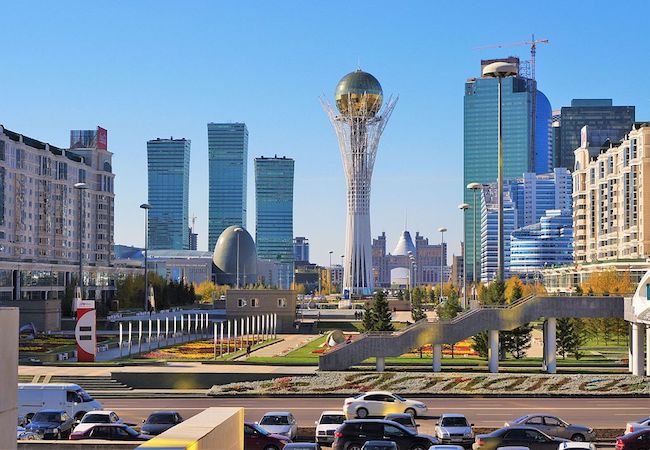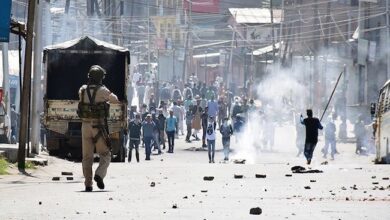
By Baber Ali Bhatti
Central Asian Republics (CARs) assumed great significance in the region owing to their energy potential. Covering major part of the globe and having geographical proximity with South Asia, CARs have acquired the exclusive geo-political and geo-economic importance in the region. CARs include five republics of the former Soviet Union: Kazakhstan, Kyrgyzstan, Tajikistan, Turkmenistan, and Uzbekistan. All republics are land-locked and energy-rich.
Pakistan and CARs share various religious and cultural commonalities. However, Islamabad has not cultivated the ties so far with existing margin in mutual cooperation. Even though Pakistan desires close political and economic linkage with the Central Asian states, there are multitude of internal and external challenges that have been hampering the progress in this regard.
Pakistan’s internal and regional political conditions with flimsy economy have barred it from having active engagements with Central Asia. The unrest in recalcitrant Afghanistan has also brought multi-faceted obstacles in Pakistan’s efforts to establish strong bond with the CARs. The poor border situation with Afghanistan carries the biggest challenge in the materialization of the economic ventures that Pakistan seeks to pursue in form of proposed pipelines project aiming to transport oil and gas from Central Asia to Pakistan.
Regional and global powers’ competing interests, meant to have access to the energy resources of Central Asia, have also been a major hurdle in Pakistan’s endeavors to nurture cordial relations with the CARs. Long-standing presence of US led NATO forces in the region has also exerted certain impacts on inter-state relations that corollary impeded the enrichment of relations.
Moreover, US-Russia rift has managed to influence the foreign policies of the CARs. Perennial fights in Afghanistan and competing interests of two powers have caused multiple intricacies in regional paradigm. Therefore, it has become an arduous task for Pakistan to find an accurate direction to build ties that may benefit the regional countries, especially Pakistan.
Since the imposition of ‘war on terror’ on Pakistan, its internal condition is progressively debilitating amid fragile economy and political instability, that considerably affected Islamabad’s focus on the expansion of economic ties with various countries including CARs.
Axiomatically, CARs have large reserves of oil, gas and gigantic mineral wealth. However, this wealth remained untapped for Pakistan. For Pakistan is enduring a weak economy and lack of technological power which is essential to tap the wealth.
It is noteworthy that Pakistan and the CARs have signed various memoranda of understanding (MOUs) on ‘economic cooperation and collaboration’ in several fields. Furthermore, an inter-governmental Joint Economic Commission was also established with the regional countries and gave impetus to cooperative engagement in various sectors including trade, economy and science. However, Pakistan is not reaping the expected benefits because these agreements have not been materialized and implemented in true spirit so far.
Interestingly, Pakistan and Central Asian states are members of Economic Cooperation Organization (ECO) which was primarily formed to develop and improve the economic infrastructure and transportation system in the region. Fortunately or unfortunately, Shanghai Cooperation Organization (SCO) while making headway with two major powers, Russia and China, has almost eclipsed the ECO that has caused the considerable blow to its effectiveness.
Given the complicated picture of whole region and CARs, Pakistan must revisit its policies towards Central Asia. Pakistan needs to evolve a vibrant, non-aligned foreign policy, exclusively based on respect for the sovereignty of these states. Cooperation and constructive engagement must be prioritized to be the cornerstone of Pakistan’s approach towards this region.
There should be a mechanism for frequent exchanges of scholars, cultural representatives, and government officials to develop better mutual understanding and people-to-people contact. People-to-people contact is effective instrument to establish lasting mutual relations. For that matter, Pakistan may offer scholarships to Central Asian students and professionals in expert fields.
Islamabad must utilize the regional and international forums such as SCO and ECO in order to gain trust and enhance economic and political cooperation. Each Central Asian republic should be equally given importance by Islamabad in terms of developing friendly ties while addressing the multitude of irritants and challenges. Instead of waiting for the peace to return in Afghanistan for facilitating transit and pipeline routes, Pakistan must implement all economic agreements in true spirit.
Baber Ali Bhatti works for Associated with Strategic Vision Institute (SVI), a think-tank based in Islamabad, Pakistan




